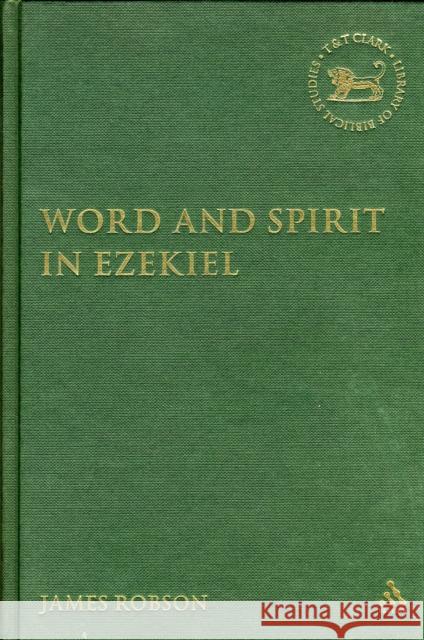Word and Spirit in Ezekiel » książka
Word and Spirit in Ezekiel
ISBN-13: 9780567026224 / Angielski / Twarda / 2006 / 340 str.
Two fundamental experiences of Yahweh in the Old Testament are an encounter with the 'word' of Yahweh and an encounter with the 'spirit' or 'wind' or 'breath' (rva-) of Yahweh. This thesis explores 'word', rva-, and their relationship in the book of Ezekiel. According to the dominant paradigm for explaining the emphasis on rva- and its relation to Yahweh's word within the book of Ezekiel, the prophet Ezekiel is recovering from the pre-classical prophets, or even pioneering, an emphasis on rva- in prophecy that is conspicuously absent from the classical, writing prophets. This reading interprets the emphasis on rva- in Ezekiel in terms of the self-authentication of the ministry of the prophet. This book examines the relationship between rva- and prophecy in Ezekiel and in the rest of the Old Testament, and shows that the dominant paradigm requires modification. The emphasis on Yahweh's rva- in Ezekiel, even the 'prophetic spirit', is best understood in relation to the book's concern for the transformation of its addressees. The prophet Ezekiel's experience of Yahweh's rva- and his own obedience to Yahweh's call are clearly contrasted with the disobedience of the prophet's addressees in order to present Ezekiel as a model for the addressees of the book. His experience illuminates for them how the dramatic vision of the future can become a reality in their experience. Yahweh's rva- has a fundamental role in the envisaged obedient response to Yahweh's word, both of Ezekiel and of the book's addressees.











